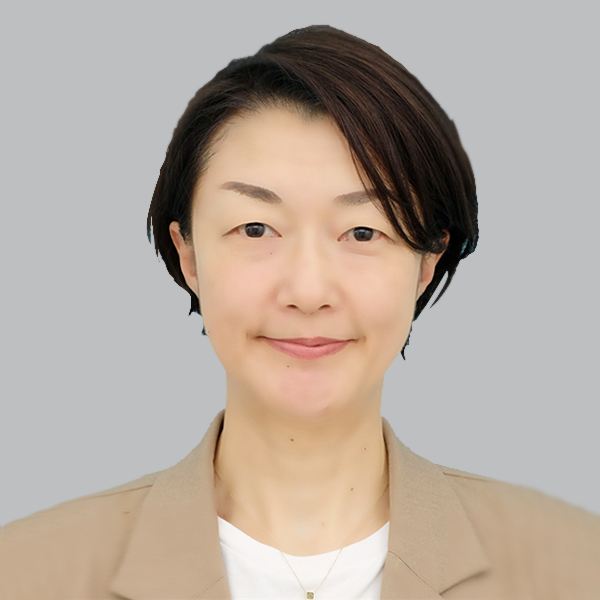Class 2 Highly Skilled Professional Visa and Permanent Resident Status Comparison in Japan
September 6, 2021
In this article, we will be comparing two statuses of residence, Class 2 Highly Skilled Professional Visa and Permanent Resident Status. The reason why we are comparing these two is because they both share the same indefinite period of stay concept.
Class 2 Highly Skilled Professional Visa
What is Class 2 Highly Skilled Professional Visa?
The term ” Class 2 Highly Skilled Professional Visa ” may not ring a bell, but since it is called “Class 2,” there is also a “Class 1”.
For more information regarding “Class 1 Highly Skilled Professional Visa”, please refer to this page “What is Class 1 Highly Skilled Professional Visa?” for more details.
Class 2 Highly Skilled Professional Visa is basically a status of residence for those who have stayed in Japan for more than three years. It is not subject to issuance of a Certificate of Eligibility and can only be changed from Class 1 Highly Skilled Professional Visa (a), (b), (c) or Specially Designated Activities as a highly skilled foreign national.
Application Requirements for Class 2 Highly Skilled Professional Visa
The requirements for change of status of residence to “Class 2 Highly Skilled Professional Visa” are as follows:
1. The activity you intend to engage in must fall under at least one of the three activity categories (a, b, c) below.
2. The applicant must have been engaged in the activity under the “Class 1 Highly Skilled Professional” visa for at least three years.
3. The total of points for education, annual income, etc. must be 70 points or more.
4. Good conduct.
5. The applicant’s stay in Japan is deemed to be in the interest of Japan.
6. The activity the person intends to engage in in Japan is not considered inappropriate from the viewpoint of its impact on Japanese industry and people’s lives.
The three types of activities (a, b, and c) in Section 1 are:
1. Advanced academic research activities (research, research guidance, and education based on a contract with a public or private institution in Japan)
2. Advanced professional/technical activities (activities to engage in work requiring knowledge or skills in the field of natural science or humanities based on a contract with a public or private organization in Japan)
3. Advanced managerial/administrative activities (activities to engage in management or administration at public or private organizations in Japan)
The requirement for permission to change status of residence to “Class 2 Highly Skilled Professional Visa” is that the foreigner intends to engage in at least one of the above activities. (Simple or manual labor, such as working at a construction site or as a convenience store clerk, is not permitted).
In terms of employment, Class 2 Highly Skilled Professional Visa differs from permanent residents in the following points:
- There are certain restrictions on activities.
- If you stay in Japan for more than six months without continuously engaging in at least one of the three types of activities described in (1) above, your status of residence may be revoked.
- You are obliged to report your organization.
Employment of Spouses of Class 2 Highly Skilled Professional Visa
Next, let’s look at the spouse of a Class 2 Highly Skilled Professional Visa holder. The spouse of a Class 2 Highly Skilled Professional Visa holder can work in Japan.
There are two ways for a spouse of a Class 2 Highly Skilled Professional Visa holder to work in Japan other than obtaining the permission to work by themselves.
1. Receive permission to engage in activities other than those permitted under the status of “Dependent” as a dependent spouse of a highly skilled professional visa holder.
2. Work under the “Designated Activities” residence status based on the preferential treatment for highly skilled professionals.
For (1), work (excluding adult entertainment businesses, etc.) is permitted for up to 28 hours per week.
For (2), work activities that fall under the “Research,” “Education,” “Engineer/Specialist in Humanities/International Services,” or “Entertainment” (entertainment activities other than those related to theatrical performances, etc.) status of residence are permitted (with certain requirements). Activities that would normally require a certain level of education or work experience can be undertaken without such qualifications. This is one of the preferential measures for highly skilled professionals. However, it is required to live together with the person who is residing in Japan with a highly skilled professional visa. If you live separately during your stay, you will not be able to work. Should you choose to do work, it will be regarded as an illegal activity outside the status of residence.
Advantages of Class 2 Highly Skilled Professional Visa
One of the characteristics of the status of residence as a highly-skilled professional is that, under certain conditions, you or your spouse can bring your parents with you. If either 1 or 2 below apply, and the requirements are met, the parent/s may accompany the spouse.
- If a child who is under 7 years of age of a highly skilled professional who is a resident or his/her spouse
- Caring for a pregnant person residing in Japan as a highly skilled professional or a pregnant spouse of a highly skilled professional.
Requirements:
The annual household income of the person residing in Japan as a highly skilled professional (the total of the annual amount of remuneration received by the person residing in Japan as a highly skilled professional and his/her spouse) must be 8 million yen or more. The accompanying parent must live together with the highly-skilled professional resident.
In addition, for those residing in Japan as a highly skilled professional, it is permitted to accompany a domestic helper who was employed in their home country for children under the age of 13.
However, certain requirements must be met, such as the annual household income of the highly skilled professional must be 10 million yen or more. If accompanying a domestic helper who was employed in the home country, the person must have been continuously employed for at least one year.
If you are a permanent resident, you cannot bring your own or your spouse’s parents to Japan, nor can you bring a domestic helper with you.
These are the two points where the status of residence as a highly skilled professional has an advantage over that of a permanent resident.
Permanent Resident
What is a permanent resident?
So, what kind of status of residence is a permanent resident? As the name suggests, a foreigner with a permanent resident status is allowed to live in Japan permanently. However, it is important to note that you may lose your status of residence in some cases, and it does not mean that you can stay in Japan forever no matter what.
Application Requirements for Permanent Residents
The requirements for change of status of residence to permanent resident are as follows
(1) Good Conduct
The applicant must comply with all laws and regulations and lead a socially acceptable life as a resident.
(2) The Capacity to Support Oneself Independently
The applicant must be expected to lead a stable life in the future in view of their financial assets or skills.
(3) National Interest
The permanent residence of the applicant is recognized to be in the interest of Japan.
- Fulfillment of official obligations such as tax payments
- Possession of the longest period of stay (3 years, 5 years)
- Absence of risk of harm to public health
- Having been in Japan for 10 years or more (5 years of which must be on work or residence status)
<Special provisions for those who have resided in Japan for 10 years or more>
The following special provisions apply to those who have resided in Japan for 10 years or more.
A. Spouses, etc. of Japanese nationals, permanent residents, and special permanent residents
→ Spouses of Japanese nationals, permanent residents, and spouses of special permanent residents must have been married for at least three years and have resided in Japan for at least one year. The biological child must have resided in Japan for at least one year.
B. Those who have been approved as a permanent resident or refugee
→ The applicant must have resided in Japan for at least 5 years.
C. Those who are recognized as contributing to Japan in the fields of diplomacy, society, economy, culture, etc.
→For those who have 70 or 75 points as stipulated in the Ministerial Ordinance on Highly Skilled Professions, the period of stay normally required for 10 years will be relaxed to 3 years. Furthermore, for highly skilled professionals with 80 points or more, the period of stay will be eased to one year.
Work Regulations for A Spouse of a Permanent Resident
The spouse of a permanent resident can stay in Japan with the status of “Spouse of Permanent Resident, etc.” (There are certain requirements to obtain this status). Foreigners with this status of residence are not restricted in their work activities. They are free to choose their occupation and working hours (simple employment is also possible). In this respect, the spouse of a permanent resident has an advantage.
Advantages of Permanent Resident Status
Work restrictions will be removed for both the permanent resident status holder and his/her spouse (only in the case of “Spouse of Permanent Resident” status). In addition, there is no longer a work requirement to maintain the status of residence. The restrictions are greatly reduced compared to other statuses of residence, which is an advantage over highly skilled professionals.
Class 2 Highly Skilled Professional or Permanent Resident?
Foreigners who have resided in Japan for one or three years continuously as a Class 1 Highly Skilled Professional will have the right to choose to change their status to either Class 2 Highly Skilled Professional or permanent resident. The main differences between the two are listed above.
The choice can be made depending on whether or not you want to bring your parents from overseas or hire a domestic helper. If this is not really of interest to you, we recommend you become a permanent resident as it has more advantages.
However, once you have obtained a permanent resident status, you will not be able to change to a Class 2 Highly Skilled Professional status. Therefore, if there is a possibility that you will be bringing your parents or domestic helpers to Japan in the future, it may be a good idea to change your status to “Class 2 Highly Skilled Professional” for now.
We have many staff members who are familiar with the various types of status of residence and employment of foreign nationals, including foreign employment managers. If you have any questions regarding the types of status of residence in Japan, please feel free to contact us.







